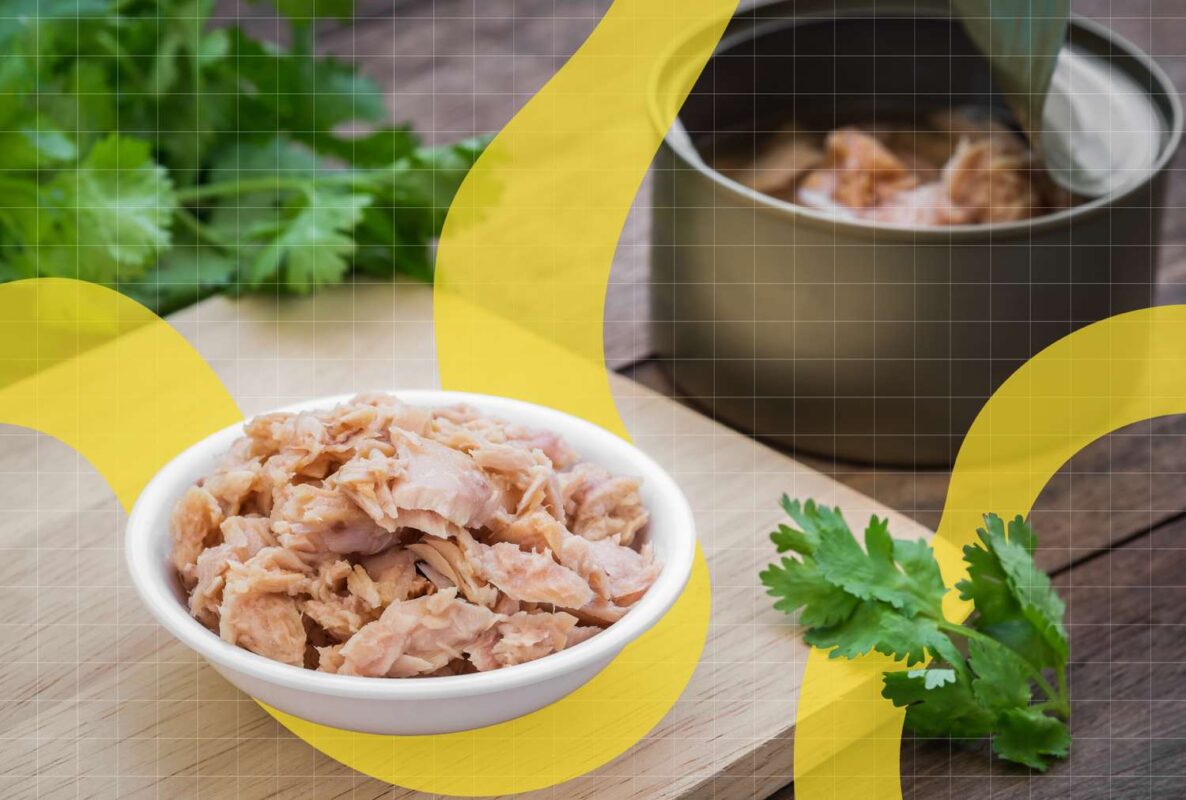Blog
The #1 Nutrient to Limit for Better Thyroid Health

- Iodine is important for your thyroid health, but getting too much can be harmful.
- Excess iodine can trigger inflammation and worsen thyroid symptoms.
- Eating a variety of foods and getting ample protein also supports your thyroid health.
Your thyroid might be small (about the size of a walnut), but it has a big job. This butterfly-shaped gland at the base of your neck produces hormones that affect nearly every system in your body, including your metabolism, mood, digestion and more. When your thyroid isn’t working like it should, you might feel unusually tired, notice changes in your weight, or even struggle with hair loss and low mood.
If you’re managing a thyroid condition like hypothyroidism or Hashimoto’s disease—or simply aiming to keep your hormones in check—it helps to know which habits might throw things off. According to experts, one common nutrient may do more harm than good when it comes to thyroid health, especially if you’re overdoing it. Here’s what you should limit, and what to focus on instead.
The #1 Nutrient to Limit: Excess Iodine
If you’ve heard that iodine is important for thyroid health, you’re not wrong. Your body needs iodine to make thyroid hormones. But in this case, more isn’t always better. “The most important thing I would recommend avoiding for optimal thyroid health is excessive iodine, especially for those with Hashimoto’s,” says Shelley Balls, M.D.A., RDN, LDN, a registered dietitian nutritionist who also lives with Hashimoto’s. McCall McPherson, PA-C, a physician’s assistant specializing in thyroid health, agrees: “While iodine is essential, too much can trigger or worsen autoimmune thyroid disease.”
Iodine can also worsen inflammation. Too much of the mineral can activate the immune system in ways that inflame the thyroid gland, particularly in people with autoimmune thyroid conditions like Hashimoto’s disease. This can interfere with thyroid hormone production and worsen symptoms.
Where to Look for Iodine and Where It May Be Hiding
You can find iodine in a variety of food sources, including seaweed (kelp, wakame, etc.) and some seafood and fish like oysters and cod. Eggs also contain a decent amount of iodine, and some store-bought breads contain the mineral because of an ingredient called iodate dough conditioner.
While iodine can be found in common food sources, it may be hiding in other places. If you take a multivitamin or a “thyroid support” supplement, you might be getting more iodine than you realize. “Check the ingredients list to ensure iodine isn’t included if you don’t need it,” advises Balls. “Some thyroid-specific multivitamins avoid iodine for this reason.” It’s also found in iodized salt. If you use table salt regularly, you may be consuming more iodine than you need. Switching to non-iodized salt or using it less often can help reduce unnecessary intake. It might also help you reduce sodium, which can benefit your overall health.
What to Do Instead for Better Thyroid Health
Limiting excess iodine is a good first step, but supporting your thyroid means more than just cutting back on one thing. Here are a few diet and lifestyle habits that can help keep your thyroid in balance.
Eat a Variety of Whole Foods
“A balanced diet that includes an abundance of vegetables, lean protein, whole grains, fruits and healthy fats can help meet your needs for nutrients like selenium, zinc, B12, vitamin A and magnesium,” says Balls. These nutrients are all important for thyroid function and hormone production.
McPherson also recommends nutrition as a first-line defense for thyroid health, specifically following an anti-inflammatory diet: “Think whole, unprocessed foods like hard-boiled eggs, pumpkin seeds and leafy greens.”
Include Protein in Every Meal
Getting enough protein each day is one of the simplest ways to give your thyroid the raw materials it needs to function properly. “Protein is an essential nutrient needed to build thyroid hormones,” says Balls. Eating protein regularly can help support your thyroid while also promoting steady energy and blood sugar levels throughout the day.
Balls recommends including protein at every meal and snack to get consistent support for hormone production.
Support a Healthy Gut
Your gut health plays a bigger role in thyroid function than you might think. “A healthy gut can promote thyroid health by helping convert the inactive thyroid hormone T4 into the active form T3,” explains Balls. It also improves nutrient absorption and supports immune balance.
Probiotic-rich foods like yogurt, kefir and fermented vegetables, along with plenty of fiber, can help nourish your gut flora and reduce inflammation.
Cook Your Cruciferous Veggies
Cruciferous vegetables like broccoli, Brussels sprouts and cauliflower contain compounds called goitrogens, which have a reputation for interfering with your body’s ability to absorb iodine—and they can. But that doesn’t mean you need to cut them out completely.
“Cook cruciferous vegetables to reduce the goitrogenic activity so it doesn’t impact iodine absorption,” suggests Balls. These veggies are still healthy—but cooking them at least some of the time is helpful.
Our Expert Take
When it comes to thyroid health, more isn’t always better—especially when it comes to iodine. While this nutrient is essential in small amounts, getting too much can trigger inflammation and worsen thyroid symptoms, particularly for people living with Hashimoto’s.
“The majority of lifestyle and diet habits that promote overall health also promote thyroid health,” says Balls. “Instead of focusing on restrictions, ask yourself what you can include—are you getting enough vegetables, berries, nuts, fish and probiotic-rich foods?”
With a focus on balanced eating, stress management and gut health, you can support your thyroid without falling into the trap of unnecessary supplements or restrictive diets.
“It’s about precision, not perfection. No single diet fits everyone—but reducing inflammation, stabilizing blood sugar and replenishing key nutrients gives you a foundation for success,” says McPherson.












